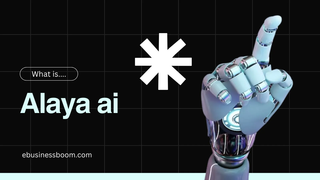AI Platforms: Powering the way forward for Technology and Innovation
AI Platforms: Powering the way forward for Technology and Innovation
Blog Article
Artificial Intelligence (AI) platforms are transforming industries and driving innovation across the globe. These robust systems integrate advanced algorithms, data analytics, and machine learning capabilities to automate processes, optimize decision-making, and deliver actionable insights. This informative article explores the fundamentals of AI platforms, their applications across various sectors, as well as their role in shaping the way forward for technology.
Understanding AI Platforms
AI platforms are comprehensive frameworks which allow the development, deployment, and treatments for AI applications. They supply a unified environment where developers, data scientists, and businesses can collaborate to build intelligent solutions. Key components of vocal remover ai typically include:
Machine Learning Models: Algorithms that learn from data to make predictions and decisions.
Data Management: Tools for collecting, storing, and processing bulk of data.
Automation: Capabilities to automate repetitive tasks and workflows.
Analytics: Tools for extracting insights and visualizing data patterns.
Integration: APIs and connectors to integrate with existing systems and applications.
Uses of AI Platforms
1. Business Intelligence and Analytics
AI platforms enable organizations to derive valuable insights from immeasureable data. They facilitate predictive analytics, trend analysis, and real-time reporting, empowering businesses to produce informed decisions and optimize operations.
2. Customer care and Support
AI-powered chatbots and virtual assistants deployed on AI platforms enhance customer care by providing instant responses, personalized recommendations, and efficient issue resolution. Natural Language Processing (NLP) capabilities enable scalping systems to understand and react to customer queries effectively.
3. Healthcare and Medicine
In healthcare, AI platforms support medical imaging analysis, personalized treatment plans, drug discovery, and patient monitoring. AI algorithms can analyze medical data to recognize patterns and predict outcomes, improving diagnosis accuracy and treatment efficacy.
4. Finance and Investment
AI platforms in finance automate trading strategies, fraud detection, credit scoring, and risk management. Machine learning models analyze market trends and financial data to optimize investment decisions and mitigate risks.
5. Manufacturing and Logistics
AI platforms optimize supply chain management, predictive maintenance, and quality control in manufacturing and logistics. AI-driven insights help reduce downtime, optimize inventory levels, and streamline operations.
Key Features of AI Platforms
1. Scalability
AI platforms are created to scale with growing data volumes and computational requirements. They support distributed computing and cloud-based deployments to take care of large-scale AI applications.
2. Flexibility and Customization
Platforms offer flexibility to tailor AI models and algorithms to precise business needs and industry requirements. Customizable workflows and APIs enable integration with diverse systems and applications.
3. Security and Compliance
AI platforms prioritize data security and compliance with regulatory standards. They implement robust encryption, access controls, and knowledge governance measures to safeguard sensitive information.
4. Collaboration Tools
Platforms provide collaboration tools for teams to work collaboratively on AI projects. Version control, model sharing, and experiment tracking facilitate efficient development and deployment cycles.
Future Trends in AI Platforms
1. Advancements in AI Algorithms
Continued advancements in AI algorithms, for example deep learning and reinforcement learning, will boost the capabilities of AI platforms in understanding complex data patterns and performing cognitive tasks.
2. AI-driven Automation
AI platforms will drive automation across industries, revolutionizing business processes, customer interactions, and operational efficiencies.
3. Ethical AI
There will be increased give attention to ethical considerations in AI development, including bias mitigation, fairness, transparency, and accountability in AI decision-making.
4. Edge AI
Edge computing capabilities will probably be integrated into AI platforms, enabling real-time information systems and AI inference in the network edge, closer to where data is generated.
AI platforms have reached the forefront of technology, empowering businesses and industries to harness the power of artificial intelligence. From enhancing operational efficiency and improving customer experiences to driving scientific research and medical advancements, AI platforms play a pivotal role in shaping not able to technology. As organizations still adopt AI-driven solutions, the evolution of AI platforms can result in new opportunities and capabilities, accelerating progress towards a more intelligent and interconnected world.